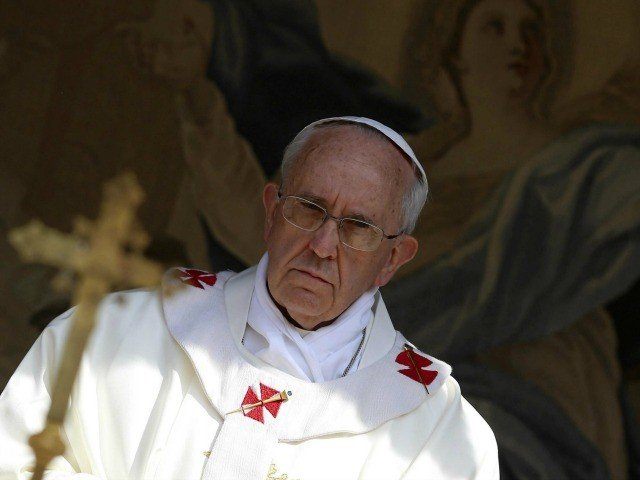Since his election as bishop of Rome, Pope Francis has encouraged lively debate in the Church, emphasizing freedom of expression over uniformity, especially on questions of policy rather than doctrine.
“Unity does not imply uniformity,” the Pope said in November. “It does not necessarily mean doing everything together or thinking in the same way.”
“Unity is knowing how to listen, to accept differences, and having the freedom to think differently and express oneself with complete respect towards the other, who is my brother or sister,” he said.
The Pope has gotten exactly what he asked for. Just prior to Christmas, one of Italy’s leading Catholic laymen, Vittorio Messori, published a piece titled “Doubts About Pope Francis’ Transformation.” In it he said his impressions of Francis’ pontificate continually “oscillate between adherence and perplexity.” Messori wondered aloud how the Pope can seem like a conservative at one moment and a liberal at the next, offering inspiring homilies full of Christian wisdom and then wishing well to Giacinto Marco Pannella, a leftist politician who works day and night against everything the Church stands for.
Indeed, Francis’ Christmas message, where he compares aborted children to the “innocents” slaughtered by King Herod at the time of Christ, has struck some people as paradoxical, given an earlier statement where he worries that some in the Church may be “obsessed” with abortion, gay marriage, and contraception.
Recent criticisms of Francis have centered especially on economic and environmental questions, particularly in the lead-up to the Pope’s upcoming encyclical letter on the environment, slated for release in early spring.
Charles Krauthammer, for instance, said if the pope wants to talk about ethics and dogma “you have to respect that,” but “the minute he steps outside of that and acts as a scientist or politician which he is on climate change, I think he opens himself up to the criticism you would give to anybody else who does.”
Yet on this issue as well, Francis has shown no inclination to impose uniformity or stifle debate. Among his closest aides is Australian Cardinal George Pell, a known “climate change sceptic” whom Francis put in charge of the Vatican’s finances. Pell has said that global warming has ceased and that if carbon dioxide in the atmosphere were doubled, then “plants would love it.”
An article Wednesday in The Hill takes a more political angle, saying that Francis is driving a “wedge” between the Catholic Church and the GOP.
The piece cites Marco Rubio’s criticism of the Pope after it was revealed that Francis had helped broker the recent diplomatic deal between Cuba and the United States. “I would also ask His Holiness to take up the cause of freedom and democracy, which is critical for a free people,” Rubio said.
It seems reasonable from the Pope’s earlier statements that he welcomes this sort of criticism, since he has said he doesn’t expect unanimous approval of all his decisions, especially those of a practical matter. Moreover, even the GOP doesn’t walk in lockstep on these issues. Republican Rep. Jason Chaffetz, for example, has said he supports the relaxing of restrictions placed on Americans traveling to Cuba and believes that if Americans are interested in helping Cuba achieve freedom, this is “a step in that right direction.”
One thing seems certain, the more the Pope pronounces on these and other controversial issues, the more debate will ensue, which seems precisely what he is looking for.
Follow Thomas D. Williams on Twitter @tdwilliamsrome

COMMENTS
Please let us know if you're having issues with commenting.